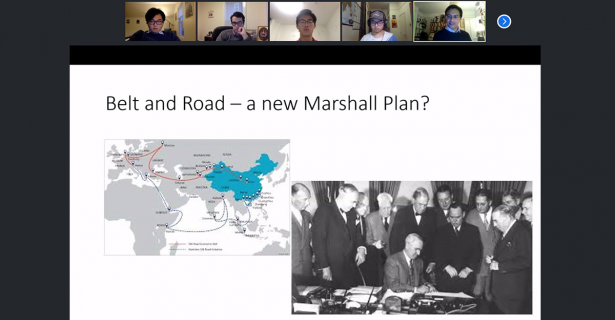Since the turn of the century, China has grown increasingly more interested in redefining its post-World War II role to reshape both its domestic and international policy. In October, Tufts SURGE had the honor of hosting Rana Mitter, a University of Oxford professor, for a discussion about his new book, China’s Good War, at our annual Book Talk. According to Professor Mitter, even though almost 100 million Chinese citizens became refugees in their own country and an estimated 15-20 million Chinese were killed either through combat or starvation during World War II, China’s participation in the war is not very well known around the world.
The reason for this, he argues, is because when Mao Zedong assumed the position of chairman of the Chinese Communist Party in 1949, he was hesitant to admit that the Nationalist Party (KMT), led by Chiang Kai-shek, contributed in any way to fighting off their common enemy—the Japanese regime. However, after Chiang and Mao died in the mid-1970s, the Chinese government was more inclined to reexamine the KMT’s role and accomplishments during World War II, in accordance with the combined efforts of both the Nationalist and the Communist Party. Among these achievements were the augmentation of the Chinese role in the Allied Powers, China’s pride in being one of the founding members of the UN, and its current role as one of the permanent members of the UN Security Council. As such, these sentiments have allowed China to bolster itself and assert its place as a key player in the realm of international relations.
However, it is essential to note that this reassessment of World War II is not only central to redefining China’s role in the international sphere, as it has also significantly affected the domestic sphere as well. Even though many Chinese netizens have often mocked the Communist Party’s attempt to portray its role in World War II as more significant than it truly was, a portion of the Chinese general public is actually beginning to believe this narrative told by the Communist Party, as seen by a few, newly produced popular movies set during World War II. Thus, this newfound focus on World War II has allowed the Chinese government not only to foster a new sense of nationalism among the Chinese general public, but also strengthen its own popular support.
In fact, in the age of COVID-19, Professor Mitter stated that the Chinese Communist Party is using the same rhetoric of claiming victory over Japan in World War II and applying it to their desire to “defeat” the coronavirus. As such, this demonstrates the scale at which the Communist Party has utilized World War II to unify the Chinese people and forge a new sense of nationalism among the citizens. To put it simply, in the words of Professor Mitter, “World War II is not just history for China, but an aspect of incredibly current affairs.”

